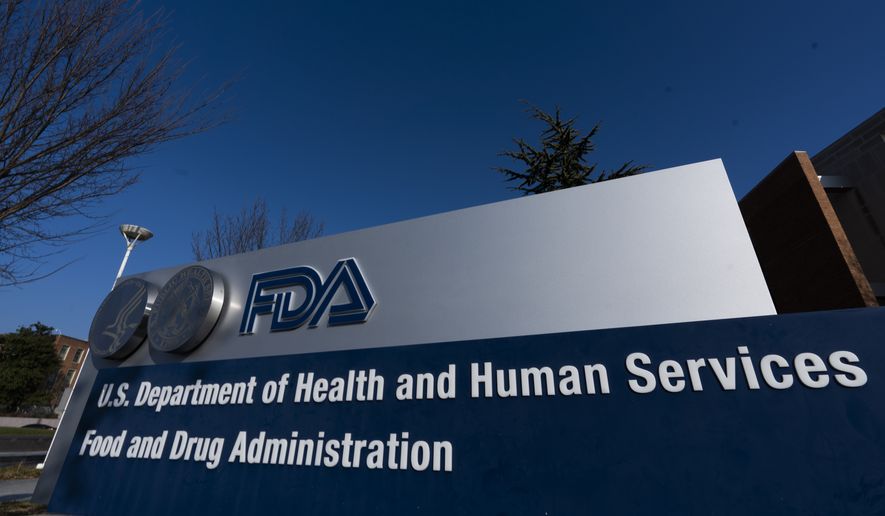Many commercial baby foods contain high levels of toxic heavy metals such as arsenic and lead, far above the amounts allowed in bottled water, according to a congressional report released Thursday.
Investigators said they found significant amounts of metals including arsenic, lead, cadmium and mercury in commercial baby foods made by Nurture, Beech-Nut, Hain Celestial and Gerber.
Baby foods contained up to 91 times the arsenic level, up to 177 times the lead level, up to 69 times the cadmium level and up to 5 times the mercury level allowed for bottled water, according to the House Oversight subcommittee on economic and consumer policy.
The Food and Drug Administration limits bottled water to 10 parts per billion (ppb) for inorganic arsenic, 5 ppb for lead and 5 ppb for cadmium. The Environmental Protection Agency has capped mercury in drinking water at 2 ppb.
“To this day, baby foods containing toxic heavy metals bear no label or warning to parents. Manufacturers are free to test only ingredients, or, for the vast majority of baby foods, to conduct no testing at all,” the congressional report says. “FDA has only finalized one metal standard for one narrow category of baby food, setting a 100 ppb (parts per billion) inorganic arsenic standard for infant rice cereal. But this FDA standard is far too high to protect against the neurological effects on children.”
The report notes that Nurture’s HappyBABY had as much as 180 ppb inorganic arsenic while more than 25% of its products before sale contained over 100 ppb of this metal.
Hain’s Earth’s Best Organic reportedly sold baby products with as much as 129 ppb inorganic arsenic and typically only tested its ingredients and not its finished products.
Beech-Nut had ingredients that tested as high as 913.4 ppb arsenic, while Gerber reportedly used rice flour that tested over 90 ppb.
In response to the report, Beech-Nut said its products are safe and nutritious and that it is reviewing the committee’s findings.
“We look forward to continuing to work with the FDA, in partnership with the Baby Food Council, on science-based standards that food suppliers can implement across our industry,” Beech-Nut said.
Hain Celestial said its baby food products meet or exceed current federal guidelines and that it works with the Baby Food Council and federal agencies to improve food safety standards such as reducing levels of heavy metals that occur naturally in soil and water.
Hain noted that it took steps to reduce the levels of heavy metals including no longer using brown rice in products that are rice-based, changing other ingredients and conducting more testing of finished products before shipping.
The subcommittee said it also requested internal documents related to baby food testing from Walmart, Campbell and Sprout Organic Foods, but the companies refused to cooperate.
Investigators said the lack of cooperation was concerning and might be “obscuring the presence of even higher levels of toxic heavy metals in their baby products.”
Walmart pointed out that it sent a letter to the committee last February, which included a presentation of its food safety requirements for suppliers and encouraged the FDA to finalize guidance for heavy metals in infant and toddler foods.
“Any product testing would be managed by our suppliers, which is why we described the certification requirements for our private label manufacturers and explained that our private label baby food manufacturers must comply with all applicable laws and regulations, including those set by the U.S. Food and Drug Administration,” Walmart said.
Campbell said it also cooperated with the committee’s baby food review and submitted responses to its inquiry.
“We want to assure our consumers, the Committee, and any other interested stakeholders that our products are safe. In our submission, we noted the unfortunate lack of a current FDA standard for heavy metals in baby food. As we told the Committee in our response, our testing showed each product was well within levels deemed acceptable by independent authorities,” Campbell said in a statement Thursday.
The Washington Times has reached out to Nurture, Gerber and Sprout Organic Foods for comment.
The FDA said it has been working on the issue and noted that toxic elements like arsenic enter the food supply through soil, water or air.
“Because they cannot be completely removed, our goal is to reduce exposure to toxic elements in foods to the greatest extent feasible,” the FDA said, adding that it advises parents to feed infants a variety of grain-based infant cereals rather than relying on rice cereal fortified with iron.
• Shen Wu Tan can be reached at stan@washingtontimes.com.




Please read our comment policy before commenting.